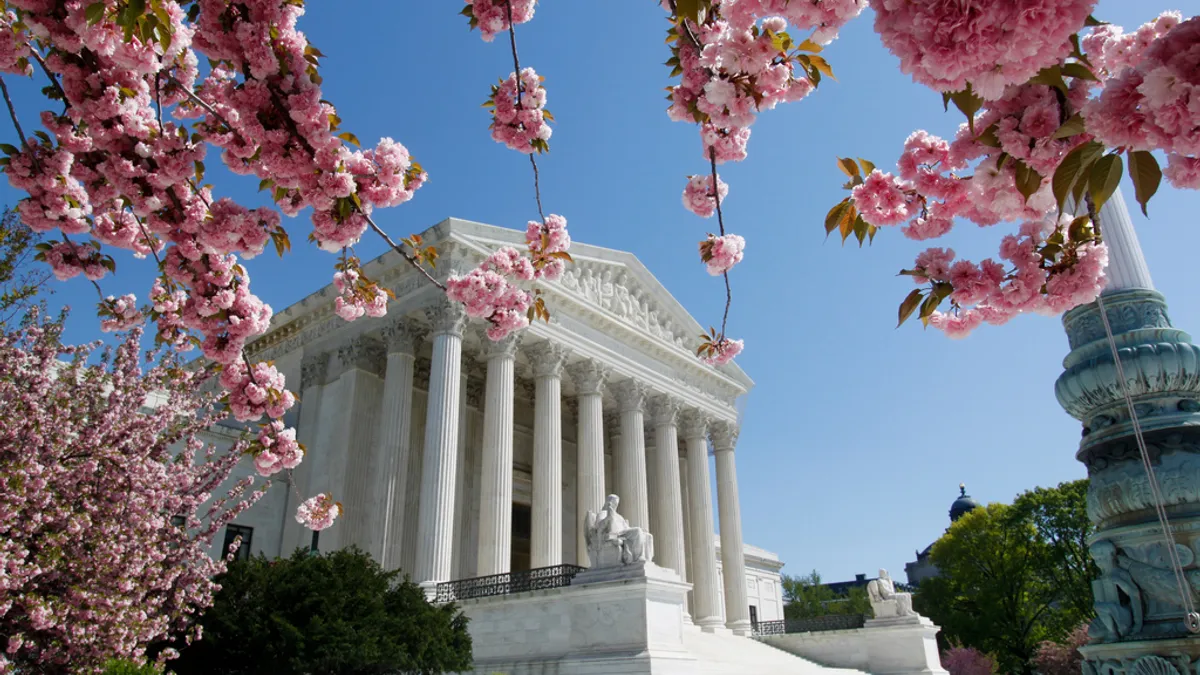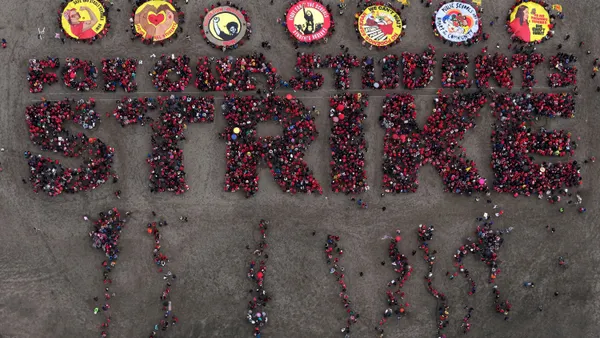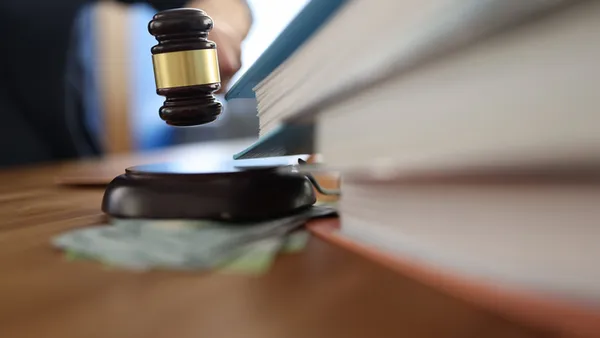Dive Brief:
- The U.S. Supreme Court heard arguments Wednesday morning in Mahanoy Area School District v. B.L., a First Amendment case brought to the federal bench after lower courts split on whether a school was within its rights to discipline a student for saying on Snapchat to a select group of peers, "F--- school, f--- softball, f--- cheer, f--- everything," after being rejected from her high school's varsity cheerleading team.
-
The petitioners in the case, the Mahanoy Area School District, agree schools should teach "how to think, not what to think" and cannot punish students for being critical of or ridiculing school. However, they argued schools should be able to regulate off-campus student speech that impacts school climate, disrupts school activities or interferes with other students' rights, arguing the student's video on social media, which was made on a Saturday when school was out of session, targeted coaches, students and their ability to cheer.
-
Attorneys representing the student and her parents argued her social media post didn't disrupt school operations, and that a one-time incident was separate from other instances of ongoing online campaigns or virtual harassment disparaging schools. The social media rant resulted in the student's suspension from the cheerleading squad for a year.
Dive Insight:
Mahanoy Area School District v. B.L. has the potential to determine whether schools can discipline off-campus speech, namely speech made on social media. The deciscion could build on the 1969 Supreme Court decision in Tinker v. Des Moines Independent Community School District, which determined public schools can discipline or regulate speech that would disrupt school operations.
"It's the most important student speech case in five decades," said William Zee, an education lawyer who often represents public schools and has experience in similar off-campus speech cases. "I think this is definitely going to guide this issue for the next generation."
The context of remote learning during the coronavirus pandemic adds to the case's urgency, Zee said.
Jason Walta, deputy general counsel for the National Education Association, which filed an amicus brief supporting neither party, said one of two outcomes are likely: The court may decide off-campus speech cannot be regulated by schools in any case, or that off-campus speech may be regulated in some cases where the content is potentially threatening, bullying or harassing.
Until now, Walta said, schools have often deferred to the latter option, which is also largely supported by the lower courts outside of the Third Circuit, in absence of a Supreme Court decision.
However, Zee says that prior to this case, he has had to warn school districts they may lose litigation in instances where schools have tried to regulate students' off-campus speech. "We've been on the wrong side of those arguments," he said.
One of his clients, for example, was steered away from taking legal action after disciplining students who, on Snapchat, made threats against a school that were later found to have been made in jest.
Still, schools have sometimes felt compelled to move forward with legal action. "School districts (are) worried about the message it sends to the school community if they don't address it," Zee said.
In the Wednesday hearing, justices on both sides of the aisle seemed to reject the idea that the content of the student's message in the Mahanoy Area School District case was threatening or caused substantial disruption.
"As a judge — and maybe as a coach and a parent, too — it seems like maybe a bit of an overreaction by the coach," said Justice Brett Kavanaugh, a conservative judge on the right-leaning bench, referring to the decision to suspend the student from the cheerleading squad for a year. "She's competitive, she cares, she blew off steam like millions of other kids have when they're disappointed from being cut from the high school team, or not being in the starting lineup, or not making all-league."
Justice Samuel Alito, who also leans conservative, agreed schools cannot discipline a student for off-campus speech that disrespects or insults the schools.
Justice Stephen Breyer, who leans more liberal, said, "If swearing off-campus did (count as material and substantial disruption), every school in the country would be doing nothing but punishing."
However, National Association of Secondary School Principals CEO Ronn Nozoe and education lawyers who spoke with K-12 Dive said schools should be able to discipline in instances where off-campus speech spills over to the on-campus climate or threatens school safety. "Taking action on these kinds of disruptions falls under the core operation of principals to offer a safe environment that's conducive to learning," Nozoe said.
The Supreme Court is expected to release its decision this summer.














